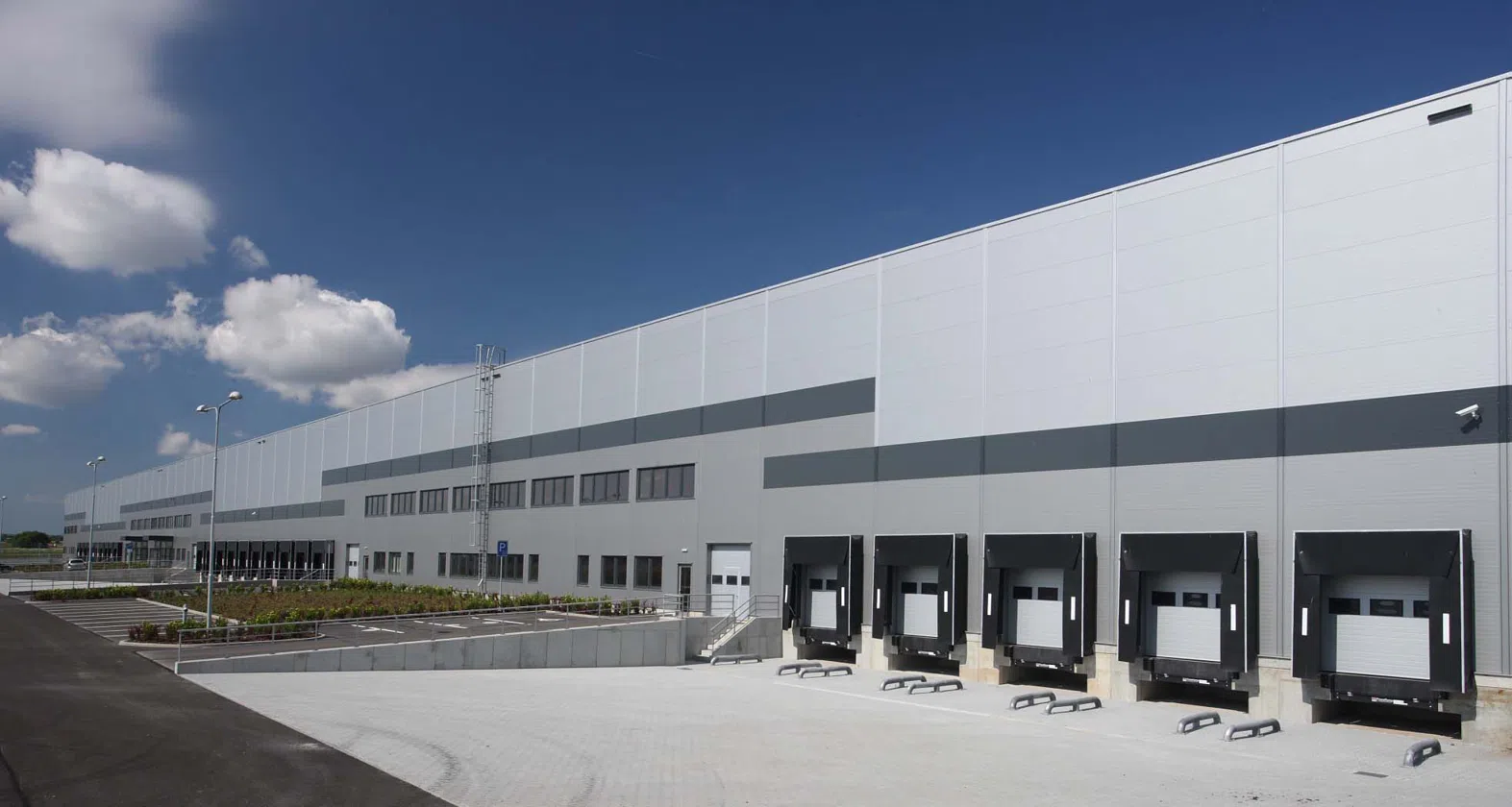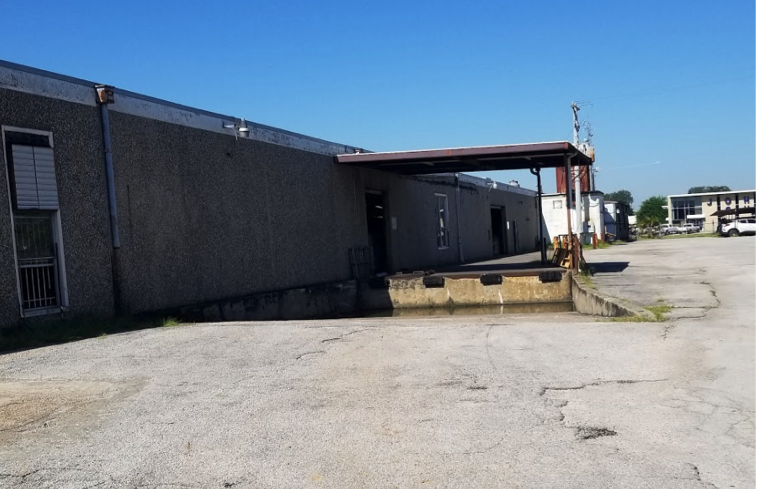 A side load dock well allows for dock-high loading access to containers in a truck court with very limited depth and is feasible to add to an existing grade-level building…
A side load dock well allows for dock-high loading access to containers in a truck court with very limited depth and is feasible to add to an existing grade-level building…
- For over 16 years (since 2008), we've operated a warehouse locator service to find industrial space (warehouse, flex, manufacturing...) for you
- All types of businesses and uses - lease, rent, sale, or purchase
- Let us perform a FREE WAREHOUSE SEARCH for you, too!
- No Gimmicks. No Hassles*. Just Quality Brokerage Services!
(* Disclaimer: Okay, okay - Real Estate does tend to throw a few knucklers, but we'll get you through them.)
All Warehouse Finder Articles & Links for Tag "Terms & Definitions"
- Crane Warehouse Space for Rent, Lease, and Sale in the Houston, Texas Area
- Crane Warehouse Space for Rent or Lease Near Dallas, Texas
- Find Cold Storage in Dallas/Fort Worth
- Houston, TX, Cold Storage Warehouse
- Bodegas en Renta
This page shows you all of the Articles and Links you requested. Assuming you have an account and are signed in, you will see a link to save the Article or Link to "Saved A&L" for later review. Once you do either, the Article or Link will be moved. You will need an account to use these features, and you must be signed in as well.
-
library_books Side Load Dock Well - Picture with DefinitionArticle SynopsisInformational Tags for this ArticleLocation Tags for this Article
-
library_books Paved or Stabilized Yard - Picture with DefinitionArticle Synopsis
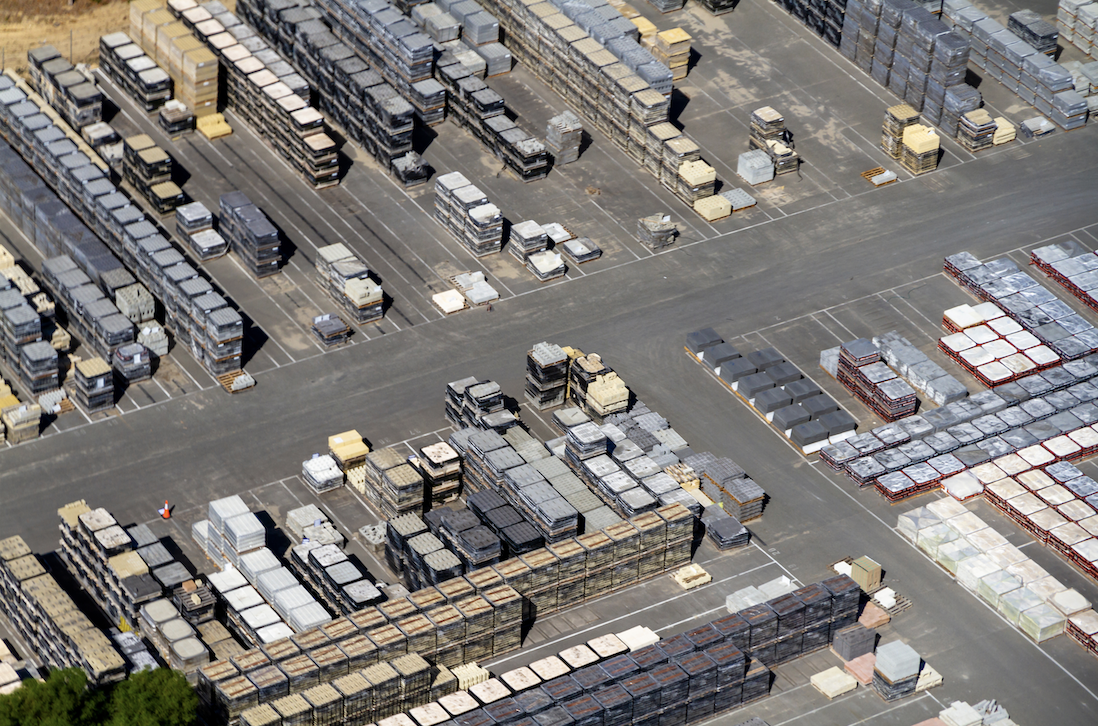
Paved or stabilized yards have many uses. They can be used to store inventory - i.e. pipe and other items that can withstand the elements - as shown in the attached photo. They can even be used to display inventory, as in the case of processed stone used for countertops. They can also serve as a place to park trucks and trailers - empty and loaded. With proper security, gating and fencing, they can be a reasonably secure place for these and many other items.
So, why not just buy some land and place these items onto it? The purpose of land stabilization is to prevent heavy materials stored on or moving across that land from sinking into the ground. Roads are a primary form of stabilization. Vehicle tire contact points concentrate the vehicle’s weight and represent an excellent example of the need for and the challenges of stabilization. A broad range of situations drives the need for stabilization. In this article, we’ll discuss:
- Several types of stabilization
- Issues with stabilizing yards
- Stabilization use cases
- Problems with using stabilized yards
For the record, we are not discussing stabilizing your back yard here. We are discussing industrial grade stabilization - probably an acre or much more.
Informational Tags for this ArticleLocation Tags for this Article -
library_books Heavy Power - Picture with DefinitionArticle Synopsis

General warehousing does not typically require electrical service beyond that needed to operate an office area with HVAC and general warehouse lighting and light-duty electrical plugs. Adding large amounts of electrical service can be quite expensive.
Informational Tags for this ArticleLocation Tags for this Article -
library_books Rail Access - Picture with DefinitionArticle Synopsis
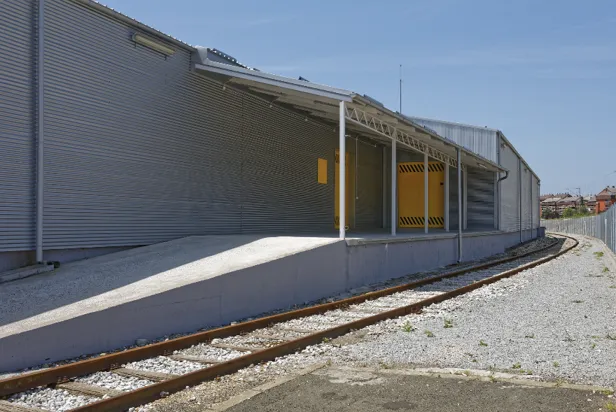
Having access to rail siding (doors on rail cars are generally on the side - hence “rail siding” - see photo), which is actually serviced (meaning a rail provider will use the track…
Informational Tags for this ArticleLocation Tags for this Article -
library_books Clear Height in Warehouses: Understanding Its Importance and ImplicationsArticle Synopsis
 When it comes to warehouse operations, the term “clear height” plays a pivotal role in determining the efficiency and functionality of the space. But what exactly is clear height, and why is it so crucial for businesses that depend on warehouses for storage and operations?…Informational Tags for this ArticleLocation Tags for this Article
When it comes to warehouse operations, the term “clear height” plays a pivotal role in determining the efficiency and functionality of the space. But what exactly is clear height, and why is it so crucial for businesses that depend on warehouses for storage and operations?…Informational Tags for this ArticleLocation Tags for this Article -
library_books Understanding Dock Wells: Definition, Uses, and Warehouse AdvantagesArticle Synopsis
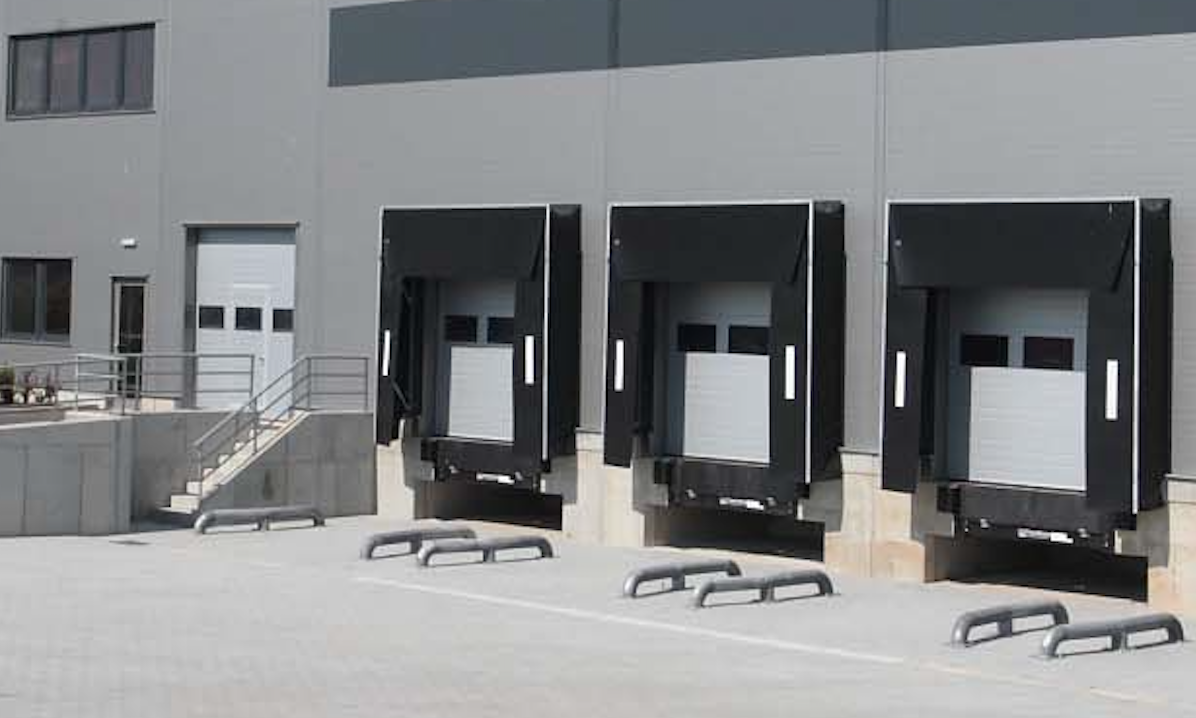
Explore how dock wells enhance warehouse operations by providing both dock-high loading and grade-level access, and learn best practices for implementation…
Informational Tags for this ArticleLocation Tags for this Article -
library_books Supply Chains and Industrial "Warehouse" RequirementsArticle Synopsis
 Overview
Overview Many (most?) in the business world have no real need to understand the ins and outs of commercial real estate property types until they experience a need to expand or contract their business. My goal here is to take you briefly through my experience, converting my business experience into an understanding of the Industrial & Flex warehouse market.
Informational Tags for this ArticleLocation Tags for this Article -
library_books Your Relationship with your Real Estate Agent/BrokerArticle Synopsis
 Did you know that your relationship with your real estate broker is fairly similar to your relationship with your attorney? To be sure, there are significant differences - but there are also significant similarities. Of course, we all hope not to have (too) much of a relationship with an attorney - at least when it comes around to legal “troubles.” To judge by current trends in the technology industry, many of us feel the same way about real estate brokers. Is it better to be “cagey” about committing to a real estate broker, or is it better to take the plunge and commit to one?
Did you know that your relationship with your real estate broker is fairly similar to your relationship with your attorney? To be sure, there are significant differences - but there are also significant similarities. Of course, we all hope not to have (too) much of a relationship with an attorney - at least when it comes around to legal “troubles.” To judge by current trends in the technology industry, many of us feel the same way about real estate brokers. Is it better to be “cagey” about committing to a real estate broker, or is it better to take the plunge and commit to one?Regulated Industry
Both attorneys AND real estate brokers (and their agents) are tightly regulated by the states (maybe al statesl, but I certainly it’s the case in Texas where I live and believe it applies broadly). They are both expected to be fiduciaries. Attorneys can take upon themselves broad fiduciary responsibilities as defined between themselves and their clients. A real estate broker is generally limited to fiduciary responsibilities in the area of real estate with an extended obligation to only engage in types of real estate in which they are knowledgable. An example would be an agent who has only handled residential suddenly representing themselves as experts of retail or office properties.
In most areas of your life, you can walk around and conduct business for yourself - buy a hot dog, rent a car, etc., etc. There may be rules those you deal with have to follow and prescribed rules around the transactions, but in most cases you have to look out for yourself - buyer beware and all that. In the real estate industry, buyer (and seller) beware applies as well, but the states I know about have decided that you will in most cases have a real estate professional helping to look out for your interests. Yes, you read that right - in most cases, it is strongly encouraged (not quite required) that a primary party to a real estate transaction employs the services of a real estate professional. If you’re wealthy, there are some ways around it that might save you money, but given the way most real estate regulations are structured, you should really be asking yourself why would I try to do it without a broker in my corner? The transaction fees required for their involvement are generally already built into most real estate transactions.
Possible Upsides to Using a Broker
This would be a long list if I were to list them all - I’ll list a few from various sources including the Texas Administrative Code, the rules of the Texas Real Estate Commission (TREC), and other sources for your consideration. A licensee must:
- “Exercise a standard of duty and care…”
- Behave with “fidelity” by treating all parties to a transaction fairly (yes, the definitions of fairness are defined about as clearly as one could define them)
- Behave with “integrity” by using “caution to avoid misrepresentation by acts of commission or omission.”
- Maintain competence - in other words, you have a right to expect that if you utilize a professional, that this professional knows his/her business and can help you competently.
This list could go on and on, and is highly specific to cases that have been encountered in any given state. If the above list isn’t enough, let me add a kicker that might push you over the edge. If you can prove the broker you hired isn’t what your real estate commission says he/she must be or doesn’t do the things your real estate commissions says he/she must do, that real estate commission has the teeth to enforce the rules they set out by force of law. In TEXAS, TREC maintains a fund collected from licensees to make certain that they can make settlements should they decide there were violations that warrant settlements.
In layman’s terms, find a qualified broker with good communication skills and work with them exclusively. They will put in the time and effort using their resources to find, or sell/lease the property you want. Let them do the work while you manage your business and personal life.
Possible Downsides to Using a Broker
There are probably no real downsides to using the right “qualified” broker to represent you. However, we can touch upon why you want to be careful in your selection. The following is an attempt at a list - which I expect to improve and enhance over time:
- Using a broker who does not have adequate knowledge or the property type and area in which you are interested. They can waste your time, likely miss opportunities, and can possibly expose you to legal action. After all, no one wants to jeopardize a real estate transaction and have to pursue or defend a legal action with or because of an incompetent broker!
- Good communication skills are not as common as you would think among real estate professionals. Some of the most intelligent brokers are not that polished at communicating. The better brokers know what questions to ask, and how to actively listen so that they understand the client’s needs.
Quick Summary
When I was pursuing my license originally here in Texas, I was amazed to see the detail with which TREC describes their expectations for ethical behavior, and for the behaviors they expect in general. Not to brag (well, maybe), but it was not all that difficult for me since the bulk of it was how I strive to do business in any case. Evidently there must be people out there who need a lot of help, guidance, and at least a little enforcement - because the states decided that this industry, along with a few others, requires fairly tight regulation. Please seriously consider willingly letting a broker take you under his/her wing and help you through what tends to be a fairly complex business transaction - sooner rather than later!
See our short disclaimer.
Are you looking for Warehouse, Office or other space in Houston or elsewhere? Do you need to renew your lease?
Contact Warehouse Finder using our Get Started link above, call us at the phone number on this page in the upper right, or chat with us using our chat widget on the page in the lower right.
Informational Tags for this ArticleLocation Tags for this Article -
link NAIOP Terms & Definitions - Real Estate Types, Etc.Link Synopsis
The NAIOP (National Association of Industrial and Office Parks), also known as the Commercial Real Estate Development Association, is an organization for developers, owners and related professionals in office, industrial and mixed-use real estate. This is a link to the Terms & Definitions page for their research foundation. You can navigate these on their web site, but they also provide a link to a .pdf to the right of the “Terms & Definitions” label that I found quite useful.
Informational Tags for this ArticleLocation Tags for this Article -
library_books Dock-High Loading Explained: Definitions, Standard Heights, and Warehouse Best PracticesArticle Synopsis
 Unlock the essentials of dock-high loading—from standard heights to truck compatibility—and discover how it enhances warehouse efficiency..Informational Tags for this ArticleLocation Tags for this Article
Unlock the essentials of dock-high loading—from standard heights to truck compatibility—and discover how it enhances warehouse efficiency..Informational Tags for this ArticleLocation Tags for this Article -
library_books Bridge Crane - Picture with DefinitionArticle Synopsis
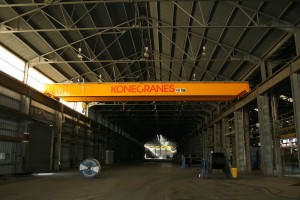
A Bridge Crane is a lifting system comprising two sets of rails built near a warehouse’s ceiling and a bridge or steel truss spanning these rails. Cranes are used to lift, move, and place heavy items quickly and accurately.
Informational Tags for this ArticleLocation Tags for this Article -
library_books Covered Exterior Elevated DockArticle Synopsis
 A covered exterior elevated dock is a concrete structure that facilitates loading and unloading of containers at or near the 48” level without obstructing warehouse access. This type of dock is implemented for various reasons, including the need for more loading and unloading slots for trucks or adding dock-high capability to a site.Informational Tags for this ArticleLocation Tags for this Article
A covered exterior elevated dock is a concrete structure that facilitates loading and unloading of containers at or near the 48” level without obstructing warehouse access. This type of dock is implemented for various reasons, including the need for more loading and unloading slots for trucks or adding dock-high capability to a site.Informational Tags for this ArticleLocation Tags for this Article -
library_books Understanding Commercial Lease Types and ResponsibilitiesArticle Synopsis
 Over three decades of commercial real estate leasing experience in warehouse and office markets, we’ve encountered numerous lease arrangements and responsibilities. This article aims to provide a comprehensive overview of the most common lease types…Informational Tags for this ArticleLocation Tags for this Article
Over three decades of commercial real estate leasing experience in warehouse and office markets, we’ve encountered numerous lease arrangements and responsibilities. This article aims to provide a comprehensive overview of the most common lease types…Informational Tags for this ArticleLocation Tags for this Article
Need More Details?
Want more information about something on this page? Need industrial, office or warehouse space? Use our Free Property Search form to provide your information to let our Broker Affiliate Network know about your needs including help assessing an existing lease. You may also call us at (800) 814 - 4214 to begin the discussion.
Please contact us at our Info Email address or use our Contact Us form if you have questions or concerns.
As Seen On
